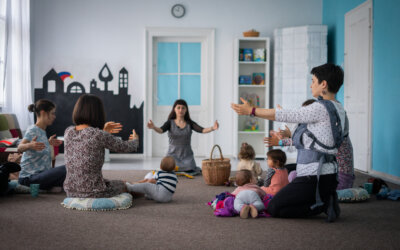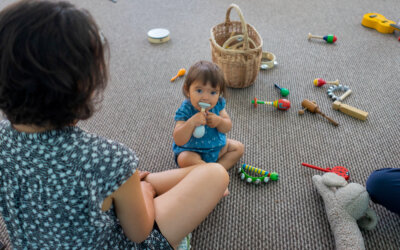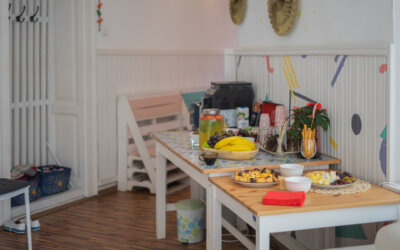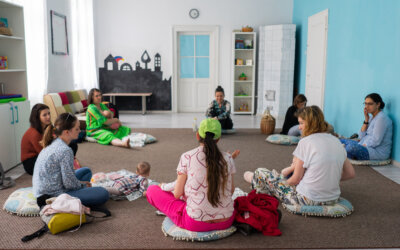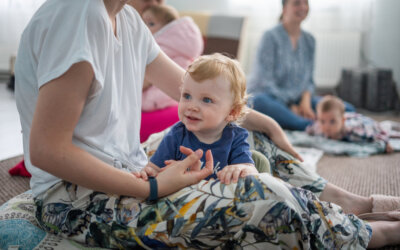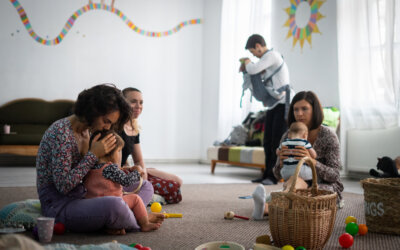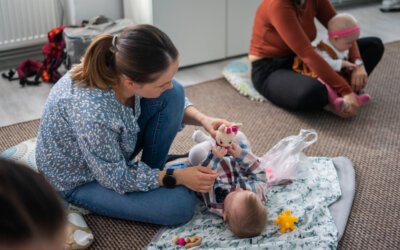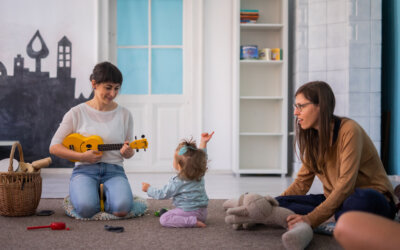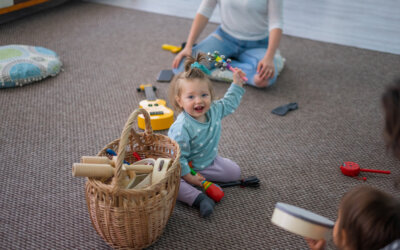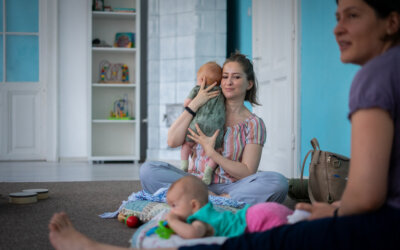Group singing for maternal mental health
This project was implemented by Cluj Cultural Centre in Cluj-Napoca, Romania in partnership with the World Health Organisation and University College London.
Context
Research indicates that up to 15% of women suffer from perinatal depression and anxiety. If not addressed or treated, perinatal mental health difficulties can result in poor outcomes for the mother and her transition to motherhood, negatively impacting the care she provides for her baby. In the worst cases, it can even lead to suicide, a leading cause of maternal death. Low access to health education and lack of policies aimed at health promotion and disease prevention further aggravate the situation of women. Moreover, Romania has the second highest number of teenage mothers in the EU and a high rate of women (30%) that have suffered domestic or sexual violence.
Investment in maternal, neonatal and child health, as well as cross-sectoral cooperation focused on improving mothers' well-being and resilience, brings significant short-term benefits, such as reducing maternal mortality, child deaths and stillbirths. It also has significant medium to long-term health benefits for women, children, and their communities. In this context, there is increasing clinical evidence for the effectiveness of using targeted singing groups to reduce symptoms of postpartum depression. However, little work has been done to test the relevance of this kind of intervention in different linguistic and cultural contexts.
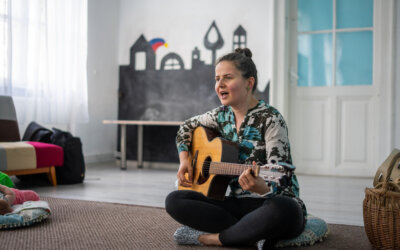
Intervention
The goal of this pilot project was to explore to what extent Music and Motherhood, a clinically effective group singing intervention for new mums in the UK, had to be adapted to meet local needs, thus investigating the feasibility of implementation and its impact on the mental health and well-being of participants in Romania and Denmark.
Group singing for maternal mental health aims to help alleviate depression symptoms, supporting participants in transforming negative emotions and negative self-perception, to experience positive emotions, support cathartic release, gather peer support, and reinforce mother-infant bonding. Mothers attend these sessions together with their babies and get to share experiences and receive support from the group, sing, and engage in simple music-making activities under the facilitation of a music lead.
Objectives
- To provide an authentic, social, and multicultural creative experience designed for recent mothers
- To create a community to act as a support system for isolated mothers
- To enhance the mothers’ ability to soothe their babies
- To strengthen the mother-infant bond
- To provide immersive ‘me time’ for mothers
- To facilitate the development of a sense of achievement and identity
Format
In Cluj-Napoca, the research project involved two groups. Two singing groups were organised, one for Romanian-speaking mothers and another one for Hungarian-speaking mothers. In total,15 new Romanian and Hungarian-speaking mothers experiencing postpartum depression symptoms participated in a 10-week group singing intervention facilitated by professional singing leaders.
The pilot involved a complex preparation, including a detailed design of the intervention and evaluation protocol; an ethical validation of the research protocol by the Babeș-Bolyai University and the WHO IRB/ethics committees; a process of consultation on the project design with public health experts, artists, psychologists and mothers who have previously experienced PPD; and conversations and cooperation meetings with a number of local stakeholders such as representatives of general physicians, private and public health institutions, psychology and mental health associations, cultural organisations, media, parents’ groups, and other interested parts.
Impact
The research conducted within the intervention suggests that the singing group intervention has significantly benefited the participating mothers. The scores for postnatal depression (measured on the EPDS – Edinburgh Postnatal Depression Scale) decreased and the scores indicating well-being (WHO-5 – Well-Being Index) and perceived social support (MSPSS –Multidimensional Scale of Perceived Social Support) have increased among the women in our pilot intervention. The changes in scores were large enough to meet statistical significance.
The project, therefore, is able to provide valuable insights for national and local public health bodies regarding how to implement arts and health interventions. It also contributes to current and future research and implementation efforts seeking to build on the clinical evidence base of singing for postnatal depression in different countries.
Read more about the intervention in Cluj.
Read about similar initiatives: Music and Motherhood
The pilot project was carried out bu Cluj Cultural Centre in partnership with the World Health Organisation and University College London.

